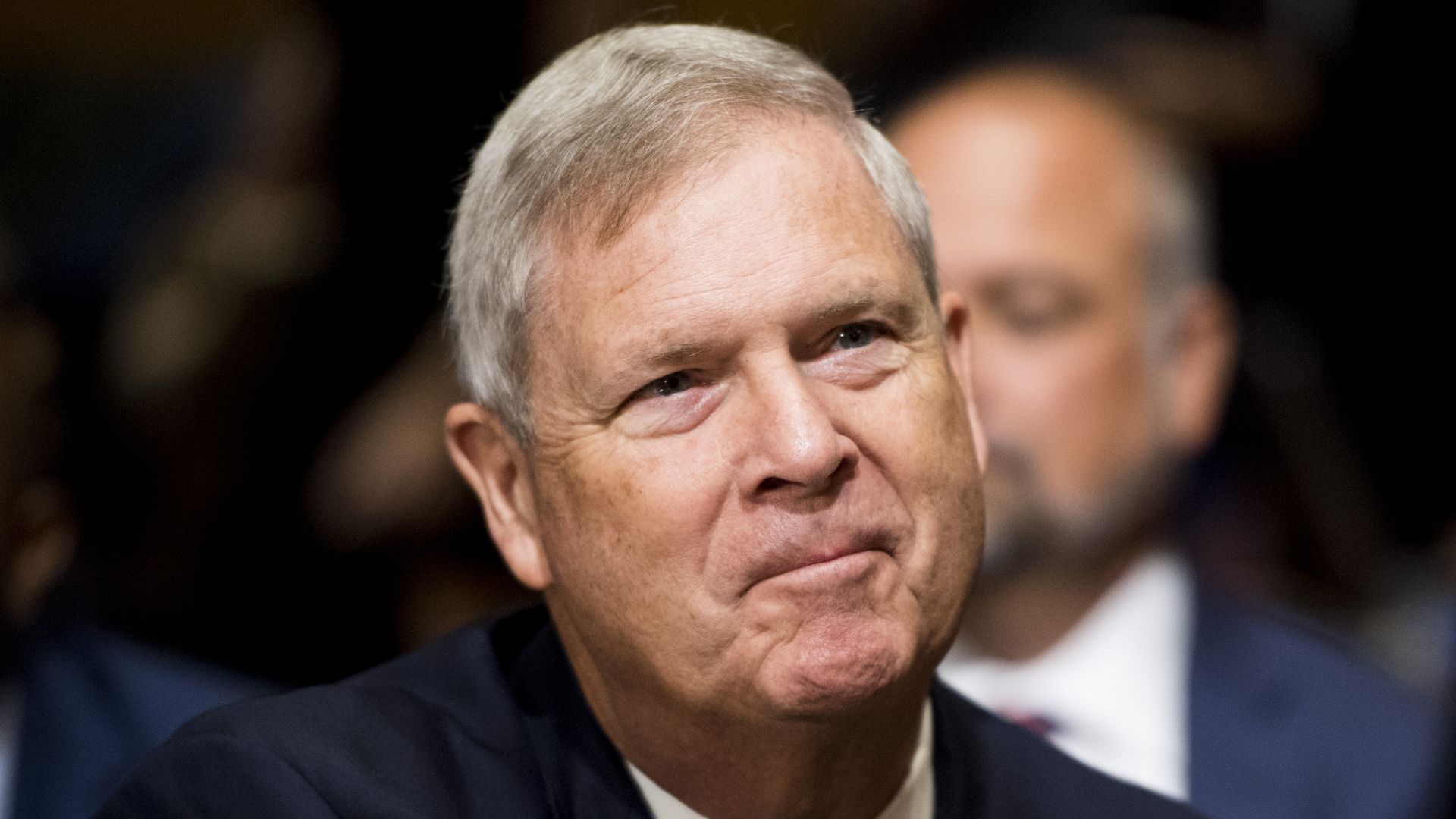| | | | | | | Presented By Chevron | | | | Generate | | By Ben Geman ·Dec 09, 2020 | | Welcome back! Today's Smart Brevity count: 1,336 words, 5 minutes. 🚨 Breaking: The third largest U.S. public pension plan "may divest from the riskiest oil and gas companies by 2025 and pledged to reach net-zero greenhouse gas emissions across its investments by 2040," Bloomberg reports. 🎶 And happy birthday to Joan Armatrading, whose beautiful songwriting and voice open today's edition... | | | | | | 1 big thing: The rocky path into a lower carbon world |  | | | Illustration: Aïda Amer/Axios | | | | Two huge oil companies charting different paths through the industry's uneven movement toward lower-carbon sources are both coming under fresh — but different — forms of pressure and scrutiny. Driving the news: The Financial Times scooped yesterday that several clean energy executives have left Shell "amid a split over how far and fast the oil giant should shift towards greener fuels." - Meanwhile, ExxonMobil, which rejects the emissions targets and diversification of European peers, faces a new push by outside investors seeking stronger steps on climate — including new board members.
Why it matters: Oil giants' balance sheets and power mean that their decisions will influence the pace of the global movement toward cleaner sources (though it's also easy to overstate their sway). Where it stands: Shell months ago pledged to become a "net-zero emissions" company by 2050, and for years has been moving into renewables, EV charging and other spaces outside oil and gas, which remain its dominant products. But Shell intends to remain a massive oil and natural gas producer for a long time. - The FT reports: "Some executives have pushed for a more aggressive shift from oil but top management is more inclined to stick closer to the company's current path."
- Departures include: "Marc van Gerven, who headed the solar, storage and on-shore wind businesses at Shell, Eric Bradley, who worked in Shell's distributed energy division, and Katherine Dixon, a leader in its energy transition strategy team."
Quick take: One trend in recent years is employees within corporate giants including Amazon and Microsoft pushing for stronger climate policies — and going public with criticisms. - So keep an eye on whether and how much this becomes a thing within the oil and gas sector.
The intrigue: This week is also bringing new pressure on Exxon that's due to investor pique over its financial performance in recent years and related concern that its climate posture leaves it poorly positioned. - The investment group Engine No. 1 just launched a shareholder push to place four new directors on Exxon's board. One is Anders Runevad, former CEO of wind turbine heavyweight Vestas, and another is Alexander Karsner, a senior strategist with X, the "moonshot factory" of Google parent Alphabet.
- The big California State Teachers' Retirement System, which Engine No. 1 says holds over $300 million in Exxon shares, is backing the effort.
|     | | | | | | 2. What we're watching: If changes happen | | Speaking of pressure on oil majors, it'll be interesting to see if this effort around Exxon gains traction. Between the lines: Shareholder bids to force big changes in energy companies' direction are usually batted aside and voted down. - One thing to watch is whether other major shareholders, such as BlackRock (which declined comment), get behind it.
What's happening: A growing number of big financial players have joined the umbrella group Climate Action 100+, an investor network that pushes companies to make new disclosures and emissions commitments. - But membership doesn't require them to support specific shareholder resolutions.
What they're saying: Mindy Lubber, CEO of the sustainable investment group Ceres that works with Climate Action 100+, says the Engine No. 1 effort is "consistent" with the umbrella group's goals. - "[W]e anticipate that Climate Action 100+ investors will welcome the opportunity to scrutinize a new slate of directors and their plans to address the significant risks of climate change to shareholder value," she tells Axios.
|     | | | | | | 3. What Vilsack means for energy and climate |  | | | Tom Vilsack in July 2019. Photo: Bill Clark/CQ Roll Call | | | | President-elect Joe Biden plans to nominate former Iowa Gov. Tom Vilsack as his agriculture secretary, giving him a role in Biden's climate agenda if confirmed to the job he also held under Barack Obama. Why it matters: The Agriculture Department is relevant here because... - Biden's platform calls for investing in practices that increase CO2 storage in soil and removing "regulatory roadblocks."
- There's oil-and-gas projects and leasing on Forest Service properties, which means he would be part of Biden's (still vague) vow to ban new permitting on federal lands.
- The department also traditionally collaborates with EPA on decisions about biofuels policy.
What we're watching: Politico reports that the chance to work on Biden's climate agenda "likely made the job more attractive for Vilsack to return." - Farm industry groups, after long resisting climate efforts, are becoming more interested in policies that incentivize soil carbon storage, per Politico.
- "An idea recently gaining traction is to expand the USDA's Commodity Credit Corp. borrowing authority to create a carbon bank to help pay farmers and other landowners for carbon sequestration," their piece states.
By the numbers: "The agriculture sector accounts for about 10% of current overall U.S. emissions, while U.S forests sequester the equivalent of about 15% of carbon dioxide emissions from combustion of U.S. fossil fuels annually," according to the Climate 21 Project. - The group, which includes several Obama alums, is offering proposals for how a whole bunch of agencies can help address global warming.
- Their USDA memo is here.
Yes, but: Vilsack's support for corn ethanol and his agribusiness background — he's led the U.S. Dairy Export Council since early 2017 — will likely rankle the left flank of the green movement. - Last night, Friends of the Earth said they were "deeply disappointed" with the choice.
- "In order to implement Biden's climate and racial justice agenda, Vilsack must be willing to transform the USDA to support a more diversified, regenerative, healthy and just food system," they said.
|     | | | | | | A message from Chevron | | Chevron is powering a better future for all | | |  | | | | It's only human to want to build a better world. Chevron is working together with women and minority-owned businesses, spending $4 billion since 2014. Because we believe that valuable ideas only come when you value everyone. Learn more here. | | | | | | 4. UN sizes up massive "emissions gap" |  | | | Illustration: Sarah Grillo/Axios | | | | The UN is out with its latest analysis of the gap between global emissions trends and "least-cost pathways" to meet the Paris climate deal's ambitious temperature-limiting goals. Why it matters: The gap remains very large, despite the emissions cuts (occurring for tragic reasons) due to the pandemic curtailing so much activity and travel. The big picture: "[T]he world is still heading for a temperature rise in excess of 3°C this century — far beyond the Paris Agreement goals of limiting global warming to well below 2°C and pursuing 1.5°C," a summary notes. - "However, a green pandemic recovery can cut around 25 percent off the greenhouse emissions predicted in 2030 and put the world close to the 2°C pathway."
- Carbon Brief has a detailed and graphics-rich look at the report here.
The intrigue: The Washington Post explores one of the report's economic dimensions... - "The world's wealthy will need to reduce their carbon footprints by a factor of 30 to help put the planet on a path to curb the ever-worsening impacts of climate change."
- "Currently, the emissions attributable to the richest 1 percent of the global population account for more than double those of the poorest 50 percent."
|     | | | | | | 5. A new plan for cutting industrial emissions |  Data: Rhodium Group; Chart: Axios Visuals Greenhouse gas emissions from power plants and tailpipes get lots of attention, but a new analysis offers a proposal to cut emissions from another huge source — heavy industry. Why it matters: The Rhodium Group estimates that industry will overtake transportation as the largest source of U.S. emissions sometime in the middle of this decade (you can see the biggest sources above). - And it comes as the incoming Biden administration is vowing new efforts to curb heat-trapping gases across the economy.
The big picture: Their study proposes a "clean products standard" that would cover both goods manufactured and imported into the United States. - The topline idea is that it would "establish the maximum amount of [greenhouse gases] per unit of material produced that can be emitted in the production of covered industrial products."
The intrigue: Manufacturers would have lots of leeway to employ methods to meet the standards, such as through the use of low-carbon power and manufacturing feedstocks, efficiency improvements, and carbon capture. The odds: New mandates — even ones that envision market-friendly mechanisms like credit trading — face immense hurdles in Congress, especially if the GOP retains the Senate. - But the analysis also suggests that legislation focusing on government procurement could be an initial step toward wider introduction of the idea.
Read the analysis |     | | | | | | 6. Catch up fast on cars: Rivian, GM, Toyota | | Charging: Rivian, which is rolling out electric pickup and SUV models, shared some details with TechCrunch... - "The company will set up dozens of EV chargers designed to power up its electric vehicles while parked at adventurous destinations, from mountain bike and hiking trails to kayaking spots and maybe even near popular climbing crags."
Sales: "Want a 2021 GMC Hummer EV Edition 1? Get in line," the Detroit Free Press reports. - "The all-electric pickup sold out in 10 minutes despite its price tag that tops $100,000, just as the automaker is preparing to start winter testing of it, Duncan Aldred, GMC vice president, said Tuesday."
Hydrogen: "Toyota has achieved a 10-fold increase in production capacity for the launch of its new hydrogen-powered car amid renewed global interest in the fuel as a means of meeting carbon targets," FT reports. |     | | | | | | A message from Chevron | | Chevron is powering a better future for all | | |  | | | | It's only human to want to build a better world. Chevron is working together with women and minority-owned businesses, spending $4 billion since 2014. Because we believe that valuable ideas only come when you value everyone. Learn more here. | | | | | | Axios thanks our partners for supporting our newsletters.
Sponsorship has no influence on editorial content. Axios, 3100 Clarendon Blvd, Suite 1300, Arlington VA 22201 | | | You received this email because you signed up for newsletters from Axios.
Change your preferences or unsubscribe here. | | | Was this email forwarded to you?
Sign up now to get Axios in your inbox. | | | | Follow Axios on social media:    | | | | | |







No comments:
Post a Comment